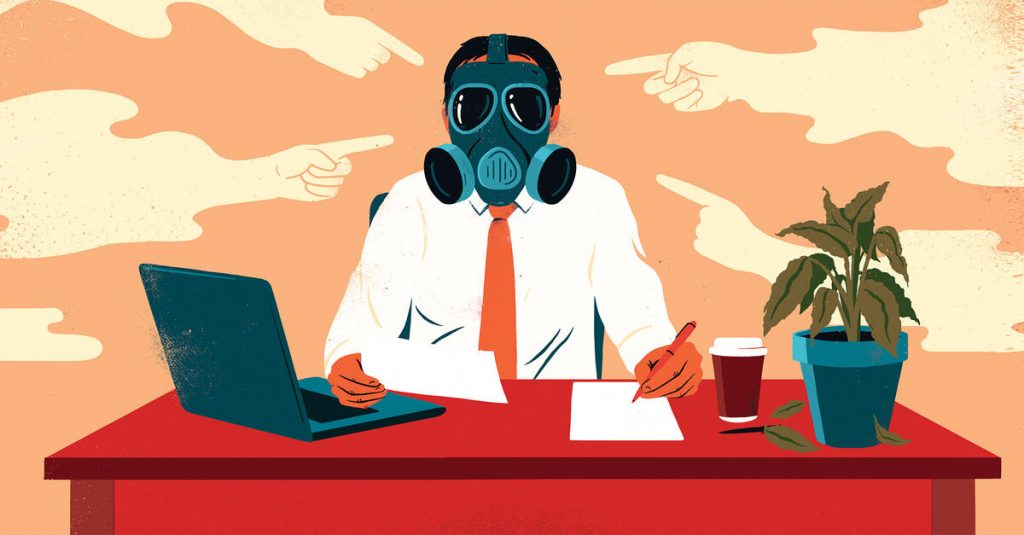
A Glance At The Toxic Work Culture in China
China, we say that no economy of any country can ever hope to survive without the efforts of its employees and labor staff. The very essence is vital for life to function properly within its borders. In layman’s terms: no employees/laborers equal to no solid economic standing. With this concept in mind, you’d think that a country would be indebted to its employees. Sadly, this point of view is misleading. Furthermore, most countries, especially those with huge population statistics, rarely ever care about the state of their employees. Scroll down to read more about the toxic work culture in China!
The Toxic Work Culture in China: 996-Work Culture
Let’s take India as an example: the biggest democracy in the world. The country has horrendous working conditions with no improvements in sight for its working class. Indian workers and laborers are subject to some of the worst working conditions in the world. Having no access to AC’s in the summer, no heaters in the winter, and no protection from the natural elements.
Therefore, the Indian labor force is at risk of injury and even death every time they enter the workplace. Yet, it is on them that the Indian economy depends. The farmer’s harvest is export quality and makes up India’s 18.43% annual GDP. This results in the Indian farmer making next to nothing but feeding the whole world.
In addition, China, a country raising the bar for all others in means of industrialization, is sadly the same. The average person anywhere in the world has a standard 9 AM – 5 PM work schedule, five days a week. In China, workers, on average, are likely to work from 9 AM – 9 PM, six days a week. Hence, with this prioritization of work over all other aspects of life, Chinese laborers work harder for longer.
The Toxic Work Culture in China: Government Laws

The government has banned this ‘996 work culture’. Alas, some companies and startups continue to implement this rule on their employees. By exploiting their employee’s lives, they get more done for their companies. China, up until very recently, has been playing catch-up to its more advanced economic rivals. Working long hours and weekends is a way to make up for lost time and get ahead of the competition.
The Exploitation Of The Chinese Laborer
In China, this 996-work culture is the norm. The main reasons that the public abides by these strict laws are:
- The money,
- Peer pressure.
Thus, people aren’t that secure financially because the Chinese government caters more to affluent people.
A job promises a stable income, a home, and a consistent life. The average Chinese laborer feeds their family’s bellies on their own. Moreover, the funding for their children’s education is hard-earned. As for peer pressure, China never holds back from its neighbors. We talked before about how the Chinese are trying to outshine the USA’s workforce by implementing longer, more complex work shifts. However, an already existing competition is underway, which is between the Chinese people themselves.
Peer pressure leads people to work harder and better than their friends and family members.
The Toxic Work Culture in China: New Norms
So, it has become a norm that the Chinese now are working harder for longer hours. And the ones who don’t want to or the ones who make a mistake get to suffer. You see, while making the 996-work culture normal, they also made proficiency regular. Perfectionism normal.
All these big tech companies and their heads now think all their employees must work with perfect efficiency. And when they don’t, they usually become subject to workplace punishment and humiliation. Public humiliation and work punishments are now commonplace. Some of the many instances of workplace punishments coming out of China are highly humiliating. In one example, an employee was made to wear black pantyhose and dance around the office. Workplace toxicity pushed another employee to post that they were a free-loader on their social media. If the employees refuse such acts of humiliation and public punishments, they are jobless on the spot. Hence, this is the harsh reality of the toxic Chinese work environment.
The Chinese Youth’s Approach to Work Culture
Reports are coming from China that the new generation is no longer prioritizing these harsh workplace rules. Indeed, they no longer see the need to work under people who would do them more harm than good. Plus, if they wind up making an error, it must be taken as a mistake. The Chinese youth have seen how these companies and their heads have treated their predecessors. Their refusal to abide by the same behavior has dire implications for the current work climate.
Furthermore, younger employees now take shorter shifts and go out of the workplace to lunch with their acquaintances. In their ways, they push back the rules set upon the laborers set by these big corporation heads. The youth know that these big CEOs only see laborers and employees the same as robots, which means they don’t have any life of their own and sell them away by working full time.
Therefore, the Chinese youth has proven that by setting boundaries and downright refusing to abide by the strict laws set for their predecessors, they can turn the tide for the better for themselves and for all those who will come after them.
Conclusion
Over a few decades, China seems to evolve its economy and workforce to match and even outshine America’s. With people working longer shifts, employees are rarely expected to do anything other than work.
Hence, this constant ‘hustle’ culture may be very appealing: you stay busy, focus on your career, and earn money. However, the dark side of this culture is what most people never think about: the exploitation of the laborer.
What are your thoughts on toxicity at your workplace? Do you feel like this is an urgent issue to address? Moreover, did you enjoy reading this post? Let me know by commenting below. This will encourage me to write more exciting content. Interested to read more? Check our recent posts like Outlawed Foot-Binding in China and Finding The Perfect Spouse in China.
Edited by: Syed Umar Bukhari.


